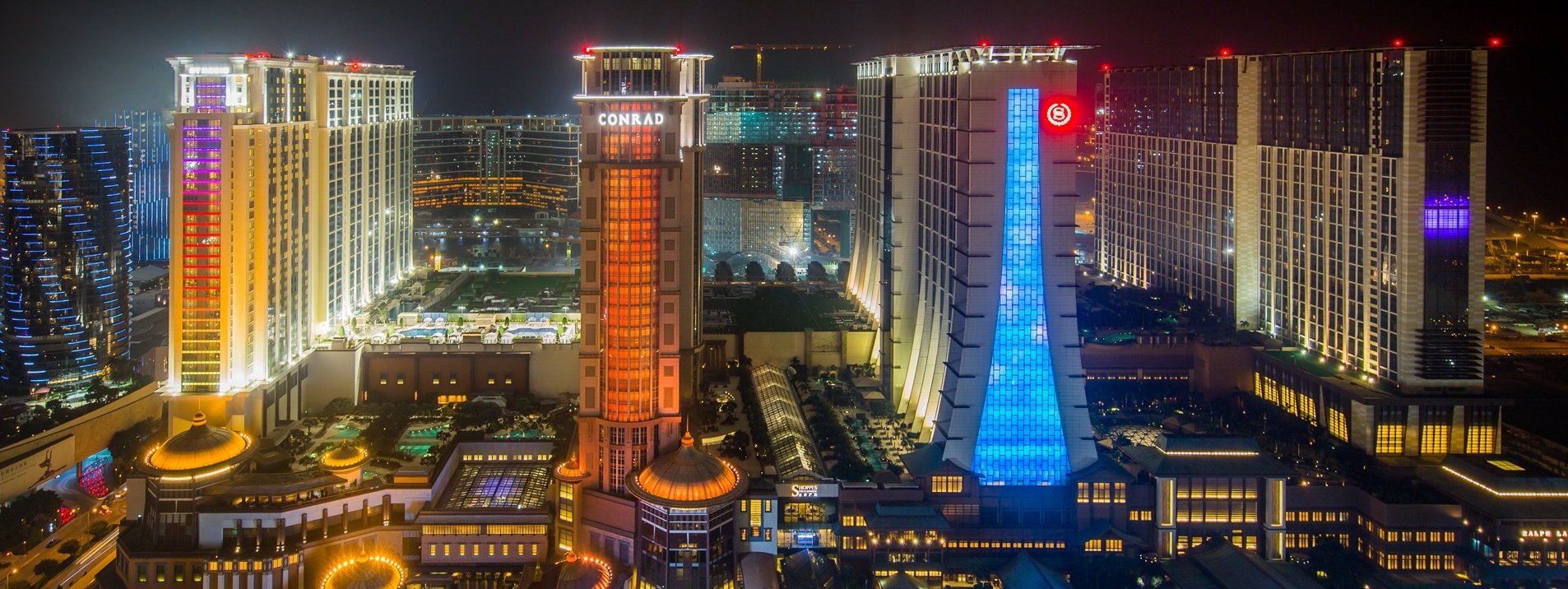Cotai Now Responsible for More Than 60 Percent of All Macau Gaming Revenue
Posted on: September 7, 2018, 11:00h.
Last updated on: September 7, 2018, 10:00h.
When casinos first came to Las Vegas, it was Fremont Street that housed most of the resorts, only for the downtown area to later be surpassed by the glitz and glamour of the Las Vegas Strip.

Now, a similar dynamic is taking place in Macau, where Cotai is increasingly outshining the rest of the city when it comes to gaming revenue.
According to a report by Melco Resorts, Cotai is now responsible for 61.2 percent of gaming revenue in the Chinese territory, the first time that the area’s market share has risen above 60 percent.
Need for Land Resulted in Cotai Creation
It was all but inevitable that the so-called Cotai Strip would continue to grow, leaving the old town in the dust. The largest and newest developments in the enclave are all taking place on the two square mile piece of reclaimed land that sits on top of Seac Pai Bay.
Cotai was created in 2005 in order to provide for a new tourism and gaming area in Macau, as the rest of the city is densely populated with little available land. After Galaxy Entertainment opened the Grand Waldo Hotel in 2006, the land rush was on, and now several major operators have launched ambitious products in the area.
The includes four properties owned by Sands China, including the Venetian, Sands Cotai Central, the Parisian Macao, and the Plaza. They’re joined by the Wynn Palace, the MGM Cotai, the Galaxy Macau, and two Melco resorts: City of Dreams and Studio City.
Even with all those properties already in business, there are still developers looking to grab their piece of the Cotai Strip or neighboring areas. With less room to work with in Macau than in Las Vegas, this often means rebranding and relaunching existing properties: for instance, the Sands Cotai Central is being rebranded with a British theme as the Londoner Macao, while Melco plans to rebrand one of their hotels at City of Dreams as the Libertine in 2021.
Cotai Resorts Fueling Macau Growth
The growth of Cotai is naturally good news for Macau as a whole, as revenues continue to increase in the world’s largest gambling hub. Year-over-year gaming revenues climbed an impressive 17 percent in August, with the casinos taking in 26.6 billion patacas ($3.3 billion) in the month. The territory has now experienced 25 straight months of growth, though there has been some concern that a Chinese economic slowdown or a trade war with the United States could threaten those gains.
According to a report by Inside Asian Gaming, Melco has been issuing reports on Cotai’s share of Macau’s gross gaming revenue (GGR) since at least 2014. Back then, Cotai had about 45.5 percent of the Macau gaming market, though that was before several of the casinos that are now active in the region were opened.
The increased share of GGR has gone hand-in-hand with the development of high-end hotels. According to the Melco report, Cotai now has about 60 percent of the four and five star rooms in Macau, up from about 47 percent in early 2014.
Last Comment ( 1 )
I think the 61% figure will go considerably higher in coming years. Next year the USD $4.6 billion Grand Lisboa Palace opens in Cotai and there is land which has yet to be developed. Add in the billions which are being invested in Hengqin, just over the Lotus Bridge from Cotai, to make Hengqin "the Orlando of China" with multiple theme parks and other attractions, and I think Cotai will not only be world-renowned as the most opulent strip in the world but it will also be the geographical center of the tourist attractions in Macau and Zhuhai.